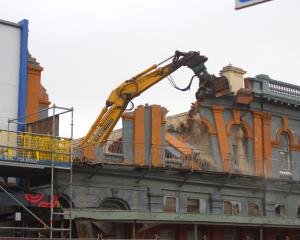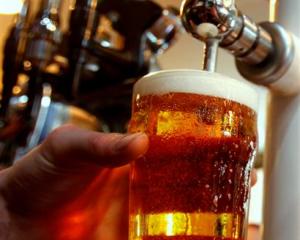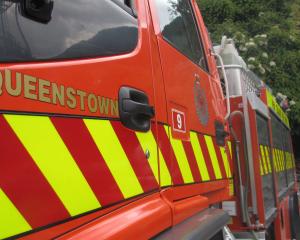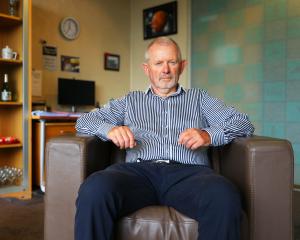Queenstown Lakes District Council rural fire investigator Tim Francis said council and the national rural fire authority was "very active" in recovering costs of firefighting and pursued prosecutions for fires that went out of control.
In some cases, people causing fires could not be identified - as happened when 40 hectares went on fire in the Cardrona Valley in November - possibly after a cigarette butt was thrown into roadside vegetation.
Similarly, investigations into a March fire at Wye Creek fire near Kingston on State Highway 6 which cost $800,000 to extinguish were inconclusive.
However, costs remain an issue after a 8000sq m blaze on Ruby Island on Lake Wanaka in December, which was caused by a discarded cigarette.
"[Some Wanaka residents] could be sent a bill for $8000 to $10,000 to cover costs for helicopters, boats and 20 or so firefighters," Mr Francis said.
"[However] they reduced the investigation costs by admitting responsibility.
"It's fair to say if you have an illegal or permitted fire which gets out of control, council will actively pursue investigation principally recover costs and even present a case to court to set an example."
Each year, the QLDC investigated about six large fires and a similar number of smaller ones which could potentially burn out of control in urban areas.
A restricted season was now in place and council had not issued fire permits since mid-December in anticipation of a prohibited season.
Rain had delayed imposition of a complete fire ban.
The QLDC maintained a total fire ban for urban areas, and about 100 permits were issued to rural areas each year.
National Rural Fire Authority manager Russell Barclay, of Dunedin, said the authority anticipated a higher fire risk in February or March when new growth dried off, especially Waitaki District and in Central Otago grass would be dry enough to pose an increased fire risk in January.
"The fire authority warning people to be careful with burn-offs and we won't issue permits if dangers are too high. A big concern is also recreation freedom campers lighting cookers on side of roads, or those lighting fires away from designated cooking sites."
The authority investigated fires for seven territorial authorities in the South Island, and reported back to regional councils on six to eight serious fires each year.
"A lot are coming from controlled burns were people have not followed the letter of the permit. Problems occur if there isn't someone on site all the time - it only takes one decent gust to spread a fire."
The largest fire the authority investigated in recent years was near Lake Pukaki in South Canterbury after a January fire which spread across 756ha of pasture, wilding pine and larch trees.
The land-owner's insurance company paid about $750,000 in public liability insurance after it was established the fire started when a hot chainsaw was placed on the ground, Mr Barclay said.
Dunedin City Council manager of Civil Defence and rural fires Neil Brown said although the Dunedin city area remained in a restricted season and warm weather was forecast in the new year, it was unlikely there would be a complete fire ban in coming weeks.
Cool, wet conditions at the start of December meant the risk was "not anywhere near as extreme" as the last time a complete ban was imposed in 2006.
"The important thing is people can't just go and light a fire. A permit is required, but even so, if it gets out of control then people will be liable for costs.
"So they have to be sensible about rules for burning, and be careful. We would encourage people to be aware of trail bikes in recreational areas, and hot exhausts.
"And not to establish camping cooking fires except for in proper fireplaces at recognised sites, or to use portable gas cookers."
Campers using charcoal barbecues should also ensure all embers were doused when they were emptied.
The council issued between 1200 and 1500 permits each year, and less than 1% of permitted fires got out of control.
The Clutha District Council imposed a restricted fire season on November 24, and stipulated agricultural stubble could only be burnt inside a 5m ploughed cordon - fire permits are required for all agricultural residue fires within 500m of City Forests, Wenita forests or within 1km of Department of Conservation areas.
The CLDC also urged those lighting fires to be mindful of wind conditions.
Following a bush fire at Waimahaka in Southland, east of Invercargill, on December 29, final costs are still yet to be determined, but the landowner had public liability insurance.
The dry scrubby bush, up to 3m high, made it some of the most volatile vegetation in the country and the fire could have spread into a huge area if left unchecked, Southern Rural Fire District principal rural fire officer Mike Grant said at the time.
Fanned by northwest winds, the fire tore through a 20ha pine plantation and another front burned about 350ha, which was mostly Department of Conservation wetland reserve.
Landowner Murray Maxwell told the Southland Times he had lit the fires in the remnants of gorse and scrub three days earlier.
While he had public liability insurance, he believed his 20ha plantation was not covered.
The cost of the helicopters used to fight the fire would run to about $120,000, plus the cost of the ground crews and equipment.











